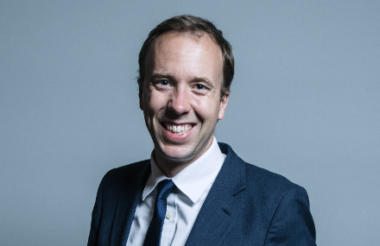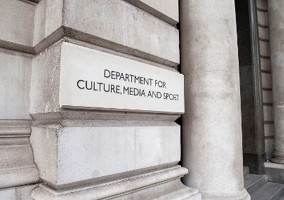Ahead of tomorrow’s deadline to contribute to the consultation on the government’s civil society strategy sector leaders were invited last week to hear the minister for civil society, Tracey Crouch, and her boss, the culture secretary, Matt Hancock, set out their vision for the future of civil society.
Crouch and Hancock both made all the right noises about the importance of the charity sector as they went on a charm offensive, telling charities in the room how valuable they are and that they were integral to the UK succeeding post-Brexit.
The vision outlined by Hancock was of a future where charities receive grants from government, is free to challenge policy and is at the centre of driving social change.
This is something that few in the sector would want to challenge. But how much of this shift in tone and language will lead to concrete changes that make life easier for charities?
‘Important role’
Opening the event, Crouch said: “I know that all of us here share a belief in the power of this sector’s ability to do amazing things.”
Hancock also emphasised that charities have a central role to play in shaping the country’s future.
“We face a concatenation of change, which is forcing us to think hard about the country we are becoming – and the country we want to become,” he said.
He highlighted the “twin phenomenons of Brexit and tech” which are both an opportunity and a challenge, and said: “The real work of connecting our society, of creating the country we want to be, rests with you, with civil society in all its forms.”
This enthusiastic, optimistic and passionate approach to the sector is a noticeable shift in tone from government, and one which charities should embrace.
‘We will be more vocal’
There was also an important acknowledgement that government has been, if not ignoring the sector, less vocal than it could have been.
Crouch told the audience that having taken on the civil society brief for just over a year she realised that there was “something vital missing”.
“That something - fair to say - was voice of government,” she said. “That is not to say the government didn’t care about civil society – far from it.”
She said government could do more to be an “energising voice” and to “publicly state our huge admiration and respect” for the sector.
Softer message on lobbying
The language used Hancock and Crouch when it comes to lobbying and campaigning by charities was softer than we have seen in the past, with Hancock actively saying he wants charities to speak out and that he accepts that he will not always like what they have to say.
He wants to see “civil society recover its confidence”.
“The greatest social and political changes in our history have come about because independent people formed associations to press for change," he said. "If that means respectful criticism of government, so be it.
“The business of civil society is society, and within the limits of charity law, you have the right to campaign, to persuade the public, and to press for change in the systems which affect the life of this country.”
But there is still no realistic prospect of any changes to the Lobbying Act, which is what the sector has said it needs.
An underlying principle, that government money should not be used to lobby government, also remains unchanged.
‘It’s not the third sector by civil society’
Hancock, at some length, explained that the term “third sector” was all wrong, and that we should all be using the term “civil society”.
“I hate the phrase the third sector,” he declared. “And you will never hear me use it to describe civil society.”
You might think this would be music to the ears of the journalists at Civil Society Media.
But Hancock has not just rebranded the sector. He has also widened it, making it messier and more complicated. He has also suggested he will reduce the focus on charities to other, less formalised, ways of doing good.
“It’s not just because it implies a rank and a hierarchy,” he said of the term civil society. “It implies a tidy-minded separate triumvirate” between people in government and people in business and the third sector.
“The overlap is so rich.”
As a bit of an aside it’s worth saying that there are a lot of terms used to describe the sector, perhaps unsurprisingly. Technically, civil society is the whole loose affiliation of anyone working, paid or unpaid, without being driven primarily by profit motive or governmental control, towards social good or community cohesion. It includes everything from universities to pub football teams.
The third sector is a smaller subset of this - usually more formalised, with some kind of structure and asset lock, and more focus on social purpose.
They're just two of many terms used to describe our sector. We have civil society, third sector, non-profit organisations, non-governmental organisations, voluntary sector, VCSE (voluntary community and social enterprise) and these often tell us a lot about how policy makers view the sector, and how sector bodies (including us) view themselves, but they mean very little to ordinary people.
These terms might be more inclusive but they are less effective at communicating with ordinary people. The only term that really seems to cut through to the public is charity.
The proof will be in the strategy
Ultimately whether we have seen a meaningful change of direction from the government when it comes to engaging with the sector, or just the latest in a long line of publicity stunts, will be determined by whether it results in a much longed for change of culture across government
But you can guarantee that should there be little policy meat in the new strategy, the sector won’t be mincing its words.
|
Related articles












